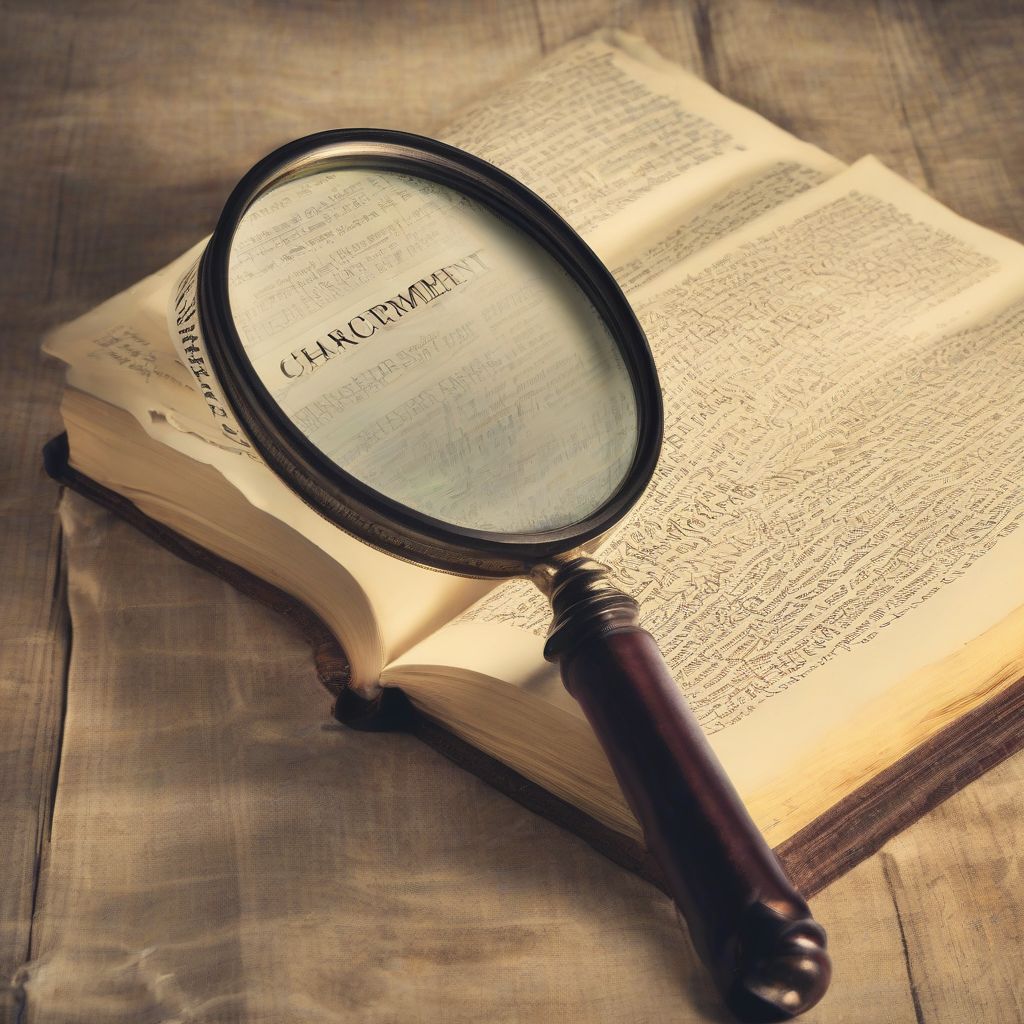Have you ever finished a classic novel and felt profoundly moved, even changed, by the journey of its characters? That’s the enduring power of masterful character development. Classic novels, unlike fleeting beach reads, delve into the depths of human nature, using compelling narratives to illustrate how and why individuals transform. These transformations resonate with readers across generations, offering insights into our own lives and the world around us.
Unveiling the Human Condition: Why Character Arcs Matter
Classic novels hold a treasured place in literature not just for their captivating plots but for their exploration of universal human experiences. At the heart of these narratives lies the evolution of characters, their arcs intricately woven into the fabric of the story. Here’s why character development is so crucial in classic novels:
- Mirrors to Ourselves: We see ourselves reflected in the struggles, triumphs, and flaws of literary characters. Their journeys offer a safe space to examine our own values, motivations, and potential for growth.
- Empathy and Understanding: Through the eyes of fictional beings, we step into different time periods, cultures, and social structures. This fosters empathy and broadens our understanding of the complexities of human behavior.
- Timeless Relevance: While societal norms may shift, the core of human experience remains constant. The challenges characters face in classic novels—love, loss, betrayal, ambition—transcend time, making their stories perpetually relevant.
Masterful Strokes: Techniques of Character Development in Classics
Classic authors employ a range of literary techniques to craft believable and compelling character transformations. These strategies pull us into the characters’ inner worlds and allow us to witness their evolution firsthand:
1. The Crucible of Conflict: Forging Change Through Adversity
Conflict, both internal and external, is the driving force of transformation in classic literature.
-
External Challenges: Consider Elizabeth Bennet’s clash with social expectations in “Pride and Prejudice” or Pip’s encounter with wealth and class disparity in “Great Expectations.” These external conflicts force characters to confront their prejudices and redefine their values.
-
Internal Struggles: Some of the most compelling transformations occur within. Hamlet’s crippling indecision, Jane Eyre’s quest for autonomy in a patriarchal society—these internal battles expose vulnerabilities and ultimately pave the path to self-discovery.
2. Relationships as Mirrors: Revealing Character Through Interaction
Characters in classic novels don’t exist in vacuums. Their interactions with others, whether familial, romantic, or adversarial, illuminate their true nature and shape their development.
-
Contrasting Personalities: In “Wuthering Heights,” the passionate but destructive love between Heathcliff and Catherine Earnshaw stands in stark contrast to the more stable, conventional relationship between Edgar Linton and Catherine’s brother, Hindley. These contrasting dynamics highlight the complexities of love, revenge, and social expectations.
-
Supporting Characters as Catalysts: Think of the wise Atticus Finch in “To Kill a Mockingbird” or the enigmatic Miss Havisham in “Great Expectations.” These supporting characters, through their actions and words, serve as catalysts for the protagonists’ growth and self-awareness.
3. A Journey of Words: Language and the Evolution of Voice
The way characters speak and think evolves alongside their personal transformations. Classic authors use language masterfully to reflect these changes.
-
Shifting Dialogue: In Jane Austen’s novels, witty banter and social commentary often mask deeper emotions. As characters evolve, their dialogue reveals vulnerability, honesty, and a deeper understanding of themselves and others.
-
Internal Monologue: Stream of consciousness and internal monologues grant readers access to a character’s innermost thoughts and feelings. This technique is particularly effective in illustrating the complexities of moral dilemmas, as seen in Fyodor Dostoevsky’s “Crime and Punishment.”
 Classic Novel Character Development
Classic Novel Character Development
Beyond the Page: The Enduring Impact of Character-Driven Classics
The impact of well-crafted character development extends far beyond the last page of a classic novel. These transformative journeys stay with us, prompting introspection and shaping our understanding of ourselves and the world.
1. Timeless Lessons in Humanity
Classic novels offer a timeless tapestry of human experience, reminding us that the struggles of love, loss, ambition, and morality are universal. By witnessing fictional characters navigate these complexities, we gain insights into our own lives and relationships.
2. The Power of Resilience
Characters in classic literature often endure significant hardships—social injustice, betrayal, loss—yet they find ways to persevere and grow. These stories of resilience inspire us to confront our own challenges with courage and determination.
3. A Catalyst for Conversations
Classic novels spark conversations that transcend time and culture. Book clubs and literary discussions provide platforms to delve into themes of morality, social justice, and the human condition, fostering a deeper understanding of ourselves and the world around us.
Conclusion: A Legacy of Transformation
Character development lies at the heart of what makes classic novels so enduringly powerful. Through masterful storytelling techniques, these literary works transport us to different worlds, introduce us to unforgettable characters, and leave us with a profound sense of connection to the human experience. As we engage with these narratives, we embark on our own journeys of self-discovery, guided by the transformative power of great literature.
What classic novel has stayed with you long after you finished the last page? Share your thoughts in the comments below!
[amazon bestseller=”classic literature”]
